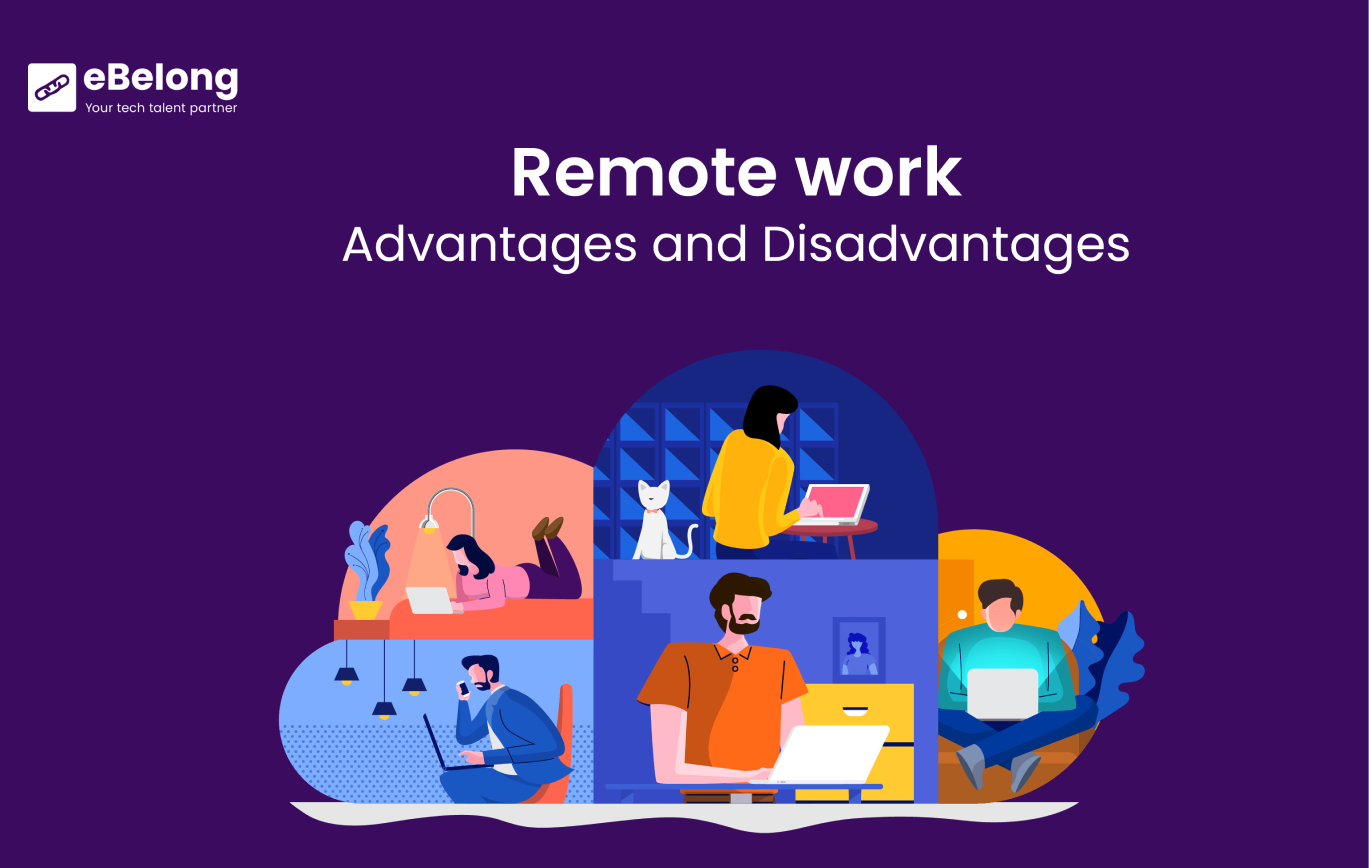Advantages and Disadvantages of Hiring Remote Workers in 2022
More and more firms are switching from traditional office employees to remote employees in the age of COVID-19.
According to recent remote work data, 5 million employees in the United States work from home at least half of the week.
Since 2005, the number of persons working remotely has increased by 173 percent, and this trend is expected to continue through 2023.
75 million individuals, or 56% of the workforce, might work from home, according to estimates.
What are some of the advantages of employing remote workers?

Remote working has a significant impact on staff retention, according to 71% of employees.
Employers should take advantage of the growing number of employees who would prefer to work from home rather than in an office.
According to a Stanford University research, some of the advantages of remote work include enhanced autonomy, productivity, and job satisfaction.
1. Lowers overhead expenses
Especially during economic downturns, office lease rent payments can add up quickly. Other overhead costs, such as workers' compensation insurance, furniture, cleaners, and office supplies, add to the expenses.
When employees work remotely, compensating them for their office space is superfluous.
According to a Glassdoor survey, 30% of people would swap wage raises for the ability to work from home.
2. Remote Employees are More Productive
They can concentrate on their task instead of getting distracted by their colleagues. Many employees also enjoy working from home. The freedom to work from any location and a flexible schedule were regarded as the most appealing features.
They're also less likely to call in with unexpected absences, such as being unwell when they aren't.
According to the Centers for Disease Control and Prevention (CDC), these unexpected absences cost employers in the United States $225.8 billion per year in lost productivity, or $1,685 per employee.
3. You can hire people from all over the world.
Hiring remote employees allows you to hire more qualified people, even if they live on the other side of the world.
Meanwhile, office personnel are limited to the talent available in the immediate area where the business is located, or you must pay relocation costs.
For organisations that are not located in major cities, this implies that the quantity of brilliant candidates available for hire is significantly reduced, and you will have a difficult time competing for candidates who prefer the city lifestyle.
4. Saves money for employees
While remote working benefits you and saves you money, it also benefits your staff. Gas, car insurance, maintenance, and food prices are all reduced.
5. Employees save time
Employees have a better quality of life because long trips to and from work are eliminated.
That is why 14% of Americans relocated solely to be closer to their workplace. However, because there are other aspects to consider, such as higher rent rates, commuting time and etc.
According to some estimates, not driving to work or attending weekly onsite meetings saves the average remote worker between 2 and 5.5 hours per day.
This attracts a large number of potential employees to remote employment.
6. Improves employee retention
Employee retention improves when they can work from home. For many existing and potential employees, the chance to skip commuting is a major selling feature.
7. Boosts employee productivity
Working from home, according to several recent research, can boost productivity by up to 50%.
8. Working from home is environmentally friendly.
The number of people who work from home decreases the number of cars on the road, resulting in reduced pollution.
Disadvantages of Hiring Remote Workers

There are many advantages to hiring remote workers, but there are also some drawbacks.
Other businesses are eager to hire remote workers despite these perceived disadvantages, but other businesses will be unable to survive as a result.
Before hiring remote workers, evaluate if your organisation can handle the issues that come with managing them.
1. There is a lack of teamwork.
It is more difficult to build a culture, camaraderie, and sense of togetherness with remote personnel due to the nature of remote working. It is critical for a team to establish mutual trust.
Using only video chats and email to communicate can be inconvenient.
2. Additional distractions
While remote employees can unwind in the luxury of their own homes, they may become overly relaxed and become distracted while working.
They are free to do other things in their homes because no boss is present to check them. This isn't an issue for employees who keep focused, but it can be a problem for remote workers.
3. Controlling time zones
When you have remote staff, one of the first things you have to deal with is time zone issues. Especially if you have staff working from all over the world.
On time-sensitive tasks, waiting 4 to 12 hours for an answer can be aggravating. To deal with this problem, further processes would be required.


